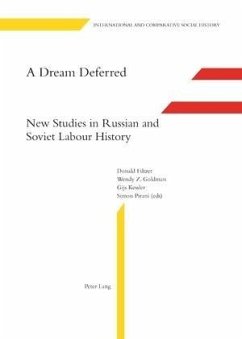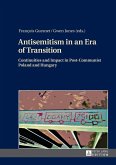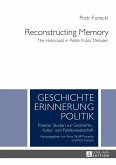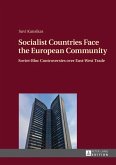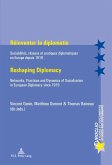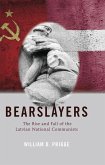This volume brings together the latest work in Russian labour history, based on exciting materials from previously closed archives and collections. Sixteen essays, focusing on peasants and workers, explore the lives and struggles of working people. Ranging over a century of dramatic upheaval, from the late 1800s to the present, the essays are organized around three broad themes: workers' politics, incentives and coercion within industrial and rural workplaces, and household strategies. The volume explores the relationship between the peasantry and the working class, a nexus that has been central to state policy, oppositional politics, economic development, and household configuration. It profiles a working class rent by divisions and defined not only by its relationship to the workplace or the state, but also by its household strategies for daily survival. The essays explore many topics accessible for the first time, including the motivations of women workers, roots of revolutionary activism, the revolutionary movement outside the great cities, socialist opposition to the Soviet regime, reactions of workers to Stalinist terror, socialist tourism, peasant families in forced exile, and work discipline on the collective farms.
Dieser Download kann aus rechtlichen Gründen nur mit Rechnungsadresse in A, B, BG, CY, CZ, D, DK, EW, E, FIN, F, GR, HR, H, IRL, I, LT, L, LR, M, NL, PL, P, R, S, SLO, SK ausgeliefert werden.
« (...) ce livre, où chacun puisera en fonction de ses centres d'intérêts, mérite l'appréciation la plus élogieuse : il restera comme un ouvrage de référence, dû aux meilleurs spécialistes du domaine. Écrit par des chercheurs de cinq pays, il fait le point sur l'état de notre connaissance du monde du travail russe et soviétique. C'est donc un guide précieux qui offre une très riche information. » (Jean-Paul Depretto, Cahiers du Monde Russe)
«'A Dream Deferred' is a very good introduction to recent Russian and Soviet labour historiography. (...) The volume presents an excellent sample of recent social and labour historiography in a form accessible to students and interested non-specialists as well as to scholars.» (Michael C. Hickey, Revolutionary Russia)
«'A Dream Deferred' is a very good introduction to recent Russian and Soviet labour historiography. (...) The volume presents an excellent sample of recent social and labour historiography in a form accessible to students and interested non-specialists as well as to scholars.» (Michael C. Hickey, Revolutionary Russia)

